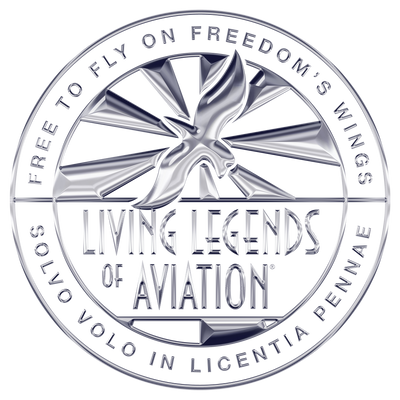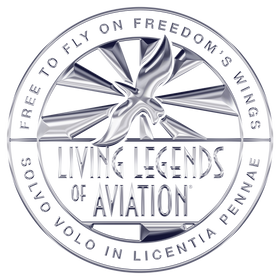ROBERT "HOOT" GIBSON

Captain Robert “Hoot” Gibson, USN has been a licensed pilot since he was 16 years old. He graduated with a Bachelor of Science Degree in Aeronautical Engineering from California Polytechnic State University in San Luis Obispo, California. He entered the United States Navy and served as a Fighter Pilot in F-4 “Phantom” and F-14 “Tomcat” Aircraft and flew combat missions in Southeast Asia, making more than 300 carrier landings aboard the Aircraft Carriers “USS Coral Sea” and “USS Enterprise”. After attending the Navy Fighter Weapons School “Topgun”, and the Navy Test Pilot School, he served as a Flight Test Pilot prior to being selected as an Astronaut in 1978 in the first Space Shuttle Astronaut selection.
In 18 years as an Astronaut he flew 5 Space Flights, 4 of them as the Mission Commander, aboard the Space Shuttles “Challenger”, Columbia”, “Atlantis”, and “Endeavour”. His final Space Flight was the first mission to rendezvous and dock with the Russian Space Station “Mir” in 1995.
In his career with NASA, he held the positions of Deputy Chief of NASA Aircraft Operations, as the Deputy Director of Flight Crew Operations, and as the Chief Astronaut.
In a flying career covering over 60 years, he has accumulated more than 14,000 hours of flight time in more than 160 types of military and civilian aircraft and flew as a pilot for a major airline for 10 years.
He raced in the Reno Air Races for 18 years in the Formula 1, Jet Class, and the Unlimited Class, flying in the Gold Championship Race 8 times, and won the Unlimited Championship in 2015.
He has received numerous honors, awards and decorations including the Defense Distinguished Service Medal, the Legion of Merit, the Distinguished Flying Cross and has established 6 Aviation World Records and 3 Space World Records. Captain Gibson was inducted into the Astronaut Hall of Fame in 2003, and was enshrined in the National Aviation Hall of Fame in 2013. He was awarded the Federation Aeronautique Internationale (FAI) Louis Bleriot Medal in 1991 and 2004, and the FAI Yuri Gagarin Gold Medal in 1995.

